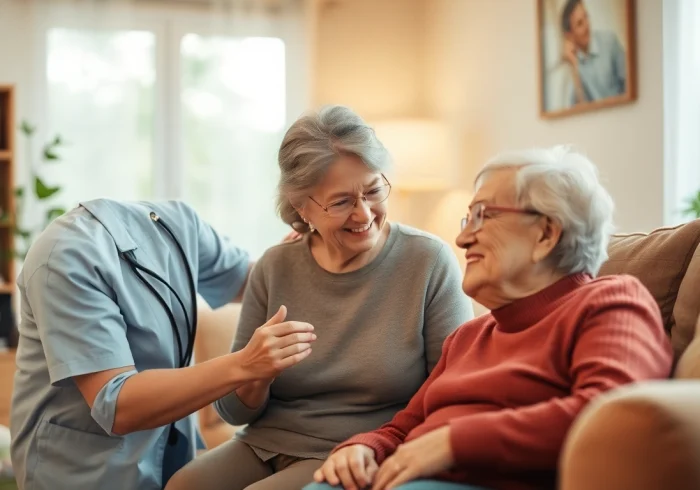Grief: What It Is and Its Different Forms
Grief is a natural and emotional response to loss that can manifest in various ways. It is commonly associated with the death of a loved one, but it can also arise from other significant life changes such as the end of a relationship or the loss of a job. This profound sense of sorrow can surface unexpectedly and may affect individuals physically, mentally, and emotionally. Understanding grief is the first step in effectively dealing with grief.
Emotional Responses to Grief
The emotional landscape of grief is complex and varies greatly from person to person. Common emotional responses include:
- Sadness: An overwhelming feeling that can be both persistent and debilitating.
- Anger: Anger directed at oneself, others, or the situation can occur as part of the grieving process.
- Guilt: Individuals may feel guilty for various reasons, including feeling that they did not do enough for their loved one or for feeling happiness amid sorrow.
- Confusion: Grief can lead to a foggy state of mind where decision-making feels particularly challenging.
- Yearning: A deep longing for the deceased can emerge unexpectedly, resurfacing often during significant moments.
The Impact of Grief on Mental Health
Grief is often accompanied by mental health challenges. The emotional pain of loss can lead to anxiety and depression, making it vital to recognize when to seek help. Symptoms of grief can sometimes mirror those of clinical depression, including lack of motivation, trouble sleeping, and social withdrawal. In many instances, grief can evolve into complicated grief, where the individual faces persistent intense emotions that interfere with daily living.
Types of Grief: Anticipatory, Complicated, and More
Grief is not one-size-fits-all. Various types of grief reflect different circumstances:
- Anticipatory Grief: This occurs before an impending loss, often experienced by families facing terminal illnesses.
- Complicated Grief: Characterized by prolonged and intense mourning, complicated grief can impair one’s ability to function.
- Disenfranchised Grief: This type occurs when a loss is not openly acknowledged, such as the death of an ex-spouse or pet.
- Collective Grief: Experienced by communities or groups, collective grief can follow events such as natural disasters or terror attacks.
Common Reactions When Dealing with Grief
Understanding common reactions to grief can help individuals navigate this challenging emotional journey.
Physical Symptoms and Their Significance
The body often reflects the emotional turmoil caused by grief. Common physical symptoms include:
- Fatigue: Grief can cause exhaustion, making daily tasks feel monumental.
- Changes in Appetite: Some might find comfort in food, while others may lose their appetite entirely.
- Sleep Disturbances: Many individuals experience insomnia, nightmares, or restless sleep.
- Physical Aches: Grief can manifest as unexplained headaches or body pain, which underscores the mind-body connection.
Emotional Stages: What to Expect
Grieving typically follows a series of stages, which may not occur linearly. The most commonly accepted model includes:
- Denial: A defense mechanism to buffer the initial shock.
- Anger: Frustration and helplessness may turn into anger directed outward.
- Bargaining: Individuals may attempt to negotiate a way out of their grief, often pleading for their loved ones to return.
- Depression: Feelings of deep sadness may emerge as the reality of the loss sinks in.
- Acceptance: Reaching a stage where one begins to find a way to move forward without the deceased.
Cultural and Personal Expressions of Grief
Grieving is often shaped by cultural backgrounds and personal beliefs. Different cultures have unique rituals that may include:
- Funerals: Various customs around burial practices emphasize respect for the deceased.
- Mourning Periods: Cultures may require specific mourning customs, such as wearing black or refraining from celebrations.
- Memorials: Honoring the dead through public memorials or family gatherings serves as a collective response to grief.
Healthy Coping Mechanisms for Dealing with Grief
Finding healthy ways to cope with grief is essential for healing and moving forward. Various strategies can facilitate this process.
The Importance of Social Support
Strong social support is crucial during times of grief. Connecting with others can counter feelings of isolation. Friends and family members can provide:
- Emotional Comfort: They can offer a listening ear and help validate your feelings.
- Shared Memories: Talking about the deceased can keep their memory alive and celebrate their life.
- Practical Help: Assist with daily tasks, alleviating the burden during heavy emotional times.
Professional Help: Therapy and Support Groups
While friends and family provide support, professional help can be invaluable. Grief counseling or therapy can offer a non-judgmental space to explore intricate emotions. Support groups provide community, allowing individuals to connect with others navigating similar experiences.
Self-Care Practices to Aid Grieving
Engaging in self-care practices can expedite healing and balance emotional well-being:
- Exercise: Physical activity can release endorphins, improving mood and overall health.
- Mindfulness and Meditation: These practices can help individuals remain present and process emotions in a healthy manner.
- Creative Expression: Writing, painting, or engaging in hobbies can serve as an outlet for grief.
The Journey Through Grief: Finding Meaning and Closure
While grief never completely vanishes, finding meaning in the experience can be profound. This journey can help pave the way to emotional healing.
Ways to Honor a Loved One’s Memory
Honoring the deceased is a powerful method to cope with grief and maintain connections. Some meaningful actions include:
- Creating a Memory Box: Collect photos, notes, and mementos that remind you of your loved one.
- Participating in Charitable Causes: Engaging in activities or donations to causes they cared about fosters a lasting legacy.
- Regular Remembrance Rituals: Designate a special day or occasion to remember and celebrate their life.
Discovering New Purpose After Loss
As painful as it is, loss often serves as a catalyst for growth. Individuals may discover new purposes, such as:
- Advocacy: Using their experience to raise awareness about issues relevant to their loss.
- New Relationships: Building new friendships and reconnecting socially can lead to personal growth.
- Shifts in Priorities: Reevaluating what matters most can provide clarity and a renewed sense of life direction.
When to Seek Further Help: Signs of Complicated Grief
It is vital to recognize when grief becomes complicated. Symptoms indicating a need for professional intervention include:
- Persistent longing or preoccupation with the deceased.
- A prolonged inability to engage in everyday activities.
- Increased isolation or withdrawal from friends and family.
- Significant changes in sleep or appetite.
Resources and Tools for Those Dealing with Grief
With the challenges of grief come numerous resources designed to provide support and guidance. Here are some valuable tools and communities:
Online Communities and Support Networks
Many online platforms provide support through forums and chatrooms where individuals can share their experiences and feelings. Resources like grief support websites and social media groups offer safe spaces for connection and understanding.
Recommended Reading and Workshops
Books and workshops focused on grief can offer insights and coping strategies. Literature authored by grief specialists can provide reassurance and steps for healing. Workshops may offer practical tools while connecting you with others who understand the journey.
Apps and Tools for Mental Wellness During Grief
Technology also offers various app-based solutions to aid those navigating grief. Mindfulness apps, meditation tools, and journaling applications can provide comforting routines to integrate daily mental wellness practices amidst grief.



